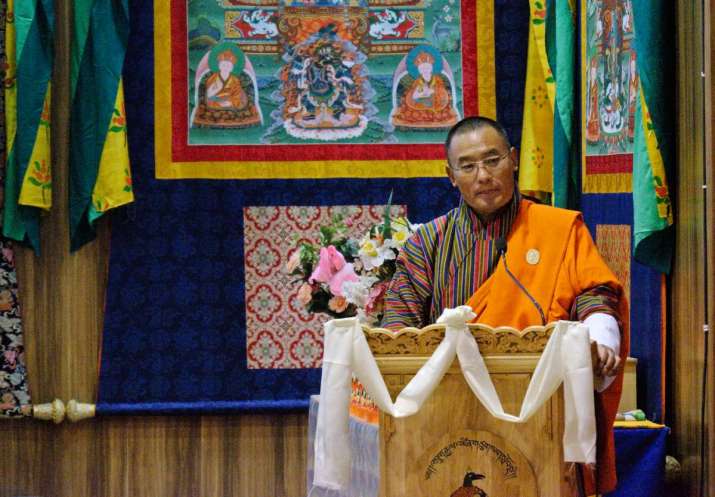Good morning! The Himalayan kingdom of Bhutan is hosting the second international Vajrayana Conference in the capital Thimphu. The three-day Buddhist conference opened on Tuesday and ran from 28–30 March. The event offered practitioners, researchers, and academics from around the world a platform upon which to share and exchange their research, findings, and experiences related to Vajrayana Buddhism in order to help preserve and promote the tradition’s profound teachings for contemporary society.
Archeologists working at an excavation at the Tuyugou Grottoes in Xinjiang Uyghur Autonomous Region, northwest China, have announced the discovery of a large fragment of ancient text believed to be a copy of the Mahaprajnaparamita Sutra, translated into Chinese by the renowned Tang dynasty (618–907) Buddhist monk, scholar, and traveler Xuanzang. The team of researchers from the Chinese Academy of Social Sciences and Academia Turfanica, who concluded the eighth excavation of the Tuyugou Grottoes in January, unearthed a large piece of manuscript, some 20 centimeters by 18 centimeters, bearing a section of the Buddhist text in Chinese. Despite being centuries old, the archaeologists say the rare document is more that 70 per cent intact.
On 14 March, the Chinese community in Kolkata, India, celebrated the 50th anniversary of the city’s Hsuan Tsang Monastery. The monastery was constructed 50 years ago, by the local Chinese community in Kolkata, the capital city of West Bengal. To mark the anniversary, the Consulate General of People’s Republic of China in Kolkata, in collaboration with Lingyin Temple in Hangzhou, China, and Cheena Bhavan of Visva-Bharati University in Santiniketan, West Bengal, hosted an international symposium on 15 March. The theme of the symposium was “Buddhist Exchanges between China and India: Past and Future”.
Dharma Dispatch is a weekly curated summary of the most important Buddhist news. See all our briefings here.

